|
|
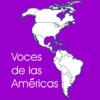
|
||
| Home | Sisters | Associates | Friars | Laity | Nuns | Link to Groups | World OP | DLC | |||
2005
Meeting
Voices of the
Americas
CODALC
website
(Spanish)
CIDALC
website
(Spanish)
Latin American
Press website
United Nations
New York
Geneva
Analysis:
On June 28th, early in the morning, a military contingent under orders of the Supreme Court of Honduras entered the presidential residence and forced President Manuel Zelaya at gunpoint to come with them. He was placed on a plane and flown to Costa Rica. .Later that day the president of Congress, Robert Micheletti, was elected President. Mel Zelaya is at the end of his four year term and cannot be reelected according to the constitution. He had proposed opening up a public poll to see if the people were open to a more participative assembly to amend the constitution. It was the fear of this happening that drove the archconservatives of his own party to decide to throw him out of office.
Since that time there have been denouncements on the part of every nation in the world (192 countries in the UN) for the coup that took place, expulsion from the Organization of American States, expulsion of ambassadors appointed by the interim government. Zelaya attempted to fly back into Honduras on a plane supplied by Venezuela. He was not allowed to land. He then tried to enter by land at the Nicaraguan border and the military prevented that attempt also. He has been going from country to country ever since saying he wants to return and has been received with full state honors in each country visited..
The United States condemned the deposing of a democratically elected president (at least President Obama did) but did not use the word “coup” in its public statements. The US supports President Oscar Arias of Costa Rica as the mediator in the dispute and has halted military aid. The conclusions and suggestions of the Costa Rican accord of Arias include the return of Manuel Zelaya, but with limited powers, amnesty for both sides among other conditions. Micheletti has consistently refused to accept the return of Manuel Zelaya and has the support of the elite, especially the wealthy business owners. There is much speculation that the United States may have at least tacitly been part of the coup since it has 600 soldiers at an army base not thirty miles from the capital even though it says it had no part in and knew nothing of the plans for the coup. For many Hondurans the memory of the 1980’s and the US backed Honduran dictators responsible for death squads and tortures has not faded and they fear a repeat of those years. 70% of the Honduran economy depends on the United States and the de facto government is pressuring its friends in USA not to cut off economic aid. However, they also say that the country could survive 6 months without outside aid. The interim government clearly wants to delay any decisions so that the November elections can take place without Zelaya. They say this even though any election would not be recognized internationally since the interim government itself is not recognized.
Micheletti has sent several delegations to Washington to explain the “whys” of the actions taken by his group. More importantly, human rights groups have come from USA to Honduras recently to hear in person the stories of the people. These Human Rights groups have heard testimonies of persons relating their experience of brutality from the police or the military. Among the groups who came were The Inter American Commission of Human Rights that now states that there is ample proof of abuses, as does Amnesty International in its report of August 19. An interreligious group of observers from the United States (Maryknoll Office of Global Concerns, Quixote Center, Mercy Sisters International among others) came the week of August 17th and met with teachers, lawyers, professionals, union workers and others who told their stories. Witness for Peace has a delegation coming September 5-15. In the end those least responsible for what has happened are the most affected. The constant roadblocks prevented small businesses from marketing their products, sudden interruptions on radio and television announced further curfews, reporters have been bullied. And many have been detained arbitrarily, imprisoned and beaten simply for participating in a peaceful march. I believe personally that it is the report of these human rights groups that will resonate in the international community and pressure the interim government to allow the return of constitutional order to Honduras. The conversations about creeping socialism and Hugo Chavez are not the issue for the majority here. It is the continued repressive response of the interim government and their absolute disregard for the rights of all, especially the poor who are suffering the consequences of their actions that need to be addressed. An alarm clock has sounded here and many who never before have participated in government are now awake and willing to be part of their country’s democratic future. Sr Doris Regan, OP (Peace) is the Peace and Justice Representative in Central America for CODALC (Dominican Sisters Conference of Latin America and the Caribbean) |
Catholic News Service: Delegation finds human rights violations across Honduras Sr Doris Regan, OP (Peace) is the Peace and Justice Representative in Central America for CODALC (Dominican Sisters Conference of Latin America and the Caribbean) "The conversations about creeping socialism and Hugo Chavez are not the issue for the majority here. It is the continued repressive response of the interim government and their absolute disregard for the rights of all..." |
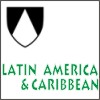

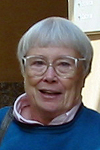 HONDURAS, CENTRAL AMERICA -- The 28th of May initiated a series of events for the people of Honduras that not only shook the ground beneath them but their spirits as well. A 7.1 earthquake struck at 2:30am that morning and fortunately did not destroy whole populations as it might have. There was extensive property damage and continued aftershocks that prevented a good night’s sleep for all for several weeks.
HONDURAS, CENTRAL AMERICA -- The 28th of May initiated a series of events for the people of Honduras that not only shook the ground beneath them but their spirits as well. A 7.1 earthquake struck at 2:30am that morning and fortunately did not destroy whole populations as it might have. There was extensive property damage and continued aftershocks that prevented a good night’s sleep for all for several weeks.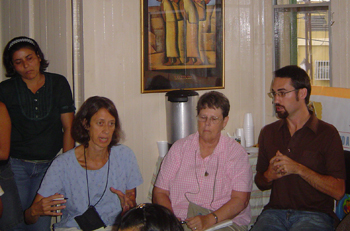
 Those who took over the government have continually justified their actions as legal. They say that Mel Zelaya was corrupt, inept, follower of Hugo Chavez. What no one foresaw was the reaction of the common folk to the coup. Massive manifestations of support for constitutional order and the return of a democratically elected president ensued. Initially there were peaceful demonstrations but as time passed and the people continued their fight, the new government initiated responses of repression by the police with tear gas, rubber bullets, intimidation by the military against the rights of citizens to gather peacefully. A nightly curfew limited the possibility of meetings. The media has been controlled throughout. The Jesuit Radio Station has been a target of attack since the beginning.
Those who took over the government have continually justified their actions as legal. They say that Mel Zelaya was corrupt, inept, follower of Hugo Chavez. What no one foresaw was the reaction of the common folk to the coup. Massive manifestations of support for constitutional order and the return of a democratically elected president ensued. Initially there were peaceful demonstrations but as time passed and the people continued their fight, the new government initiated responses of repression by the police with tear gas, rubber bullets, intimidation by the military against the rights of citizens to gather peacefully. A nightly curfew limited the possibility of meetings. The media has been controlled throughout. The Jesuit Radio Station has been a target of attack since the beginning.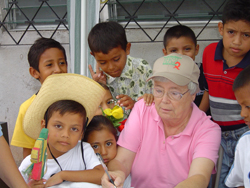 The official response of the Catholic Church hierarchy in Honduras has been to suggest that there was no coup although some individual bishops have expressed a different voice. Many feel betrayed by the Church in this dispute.
The official response of the Catholic Church hierarchy in Honduras has been to suggest that there was no coup although some individual bishops have expressed a different voice. Many feel betrayed by the Church in this dispute.